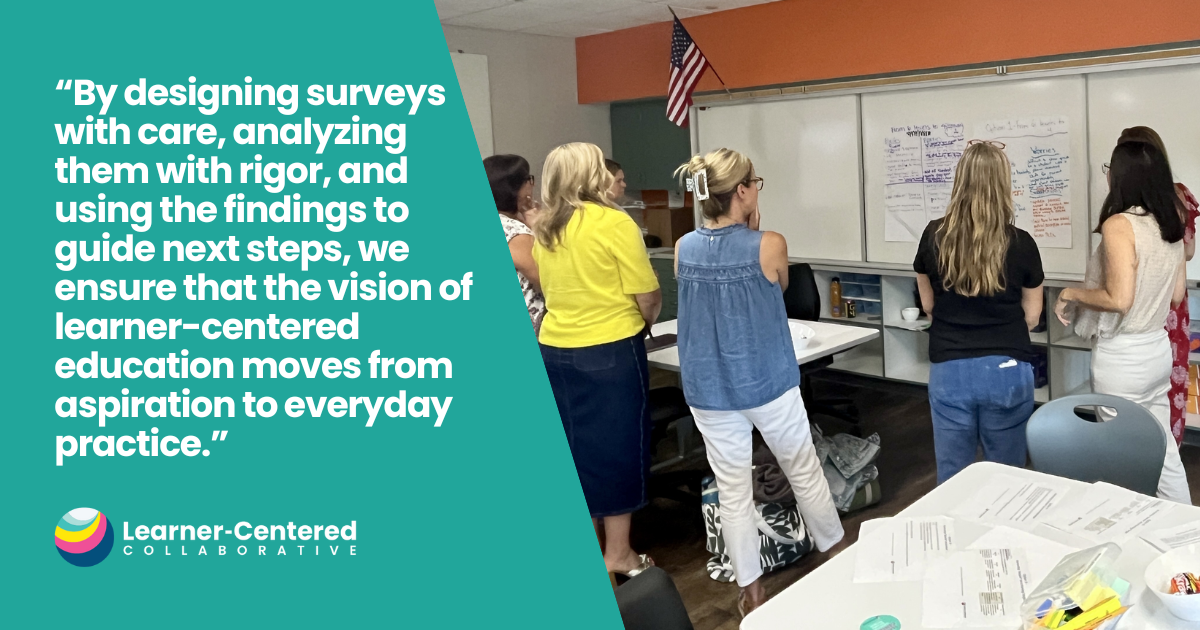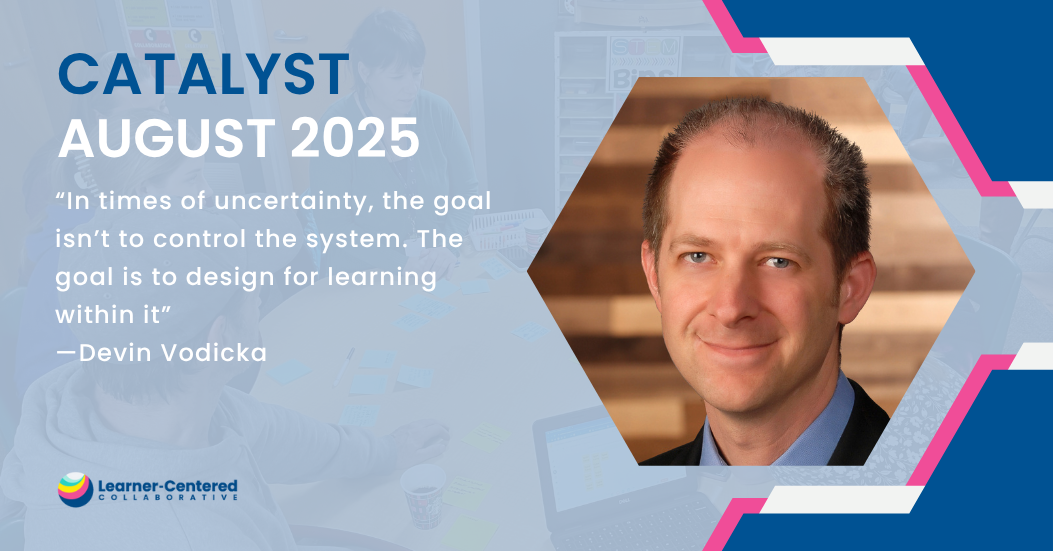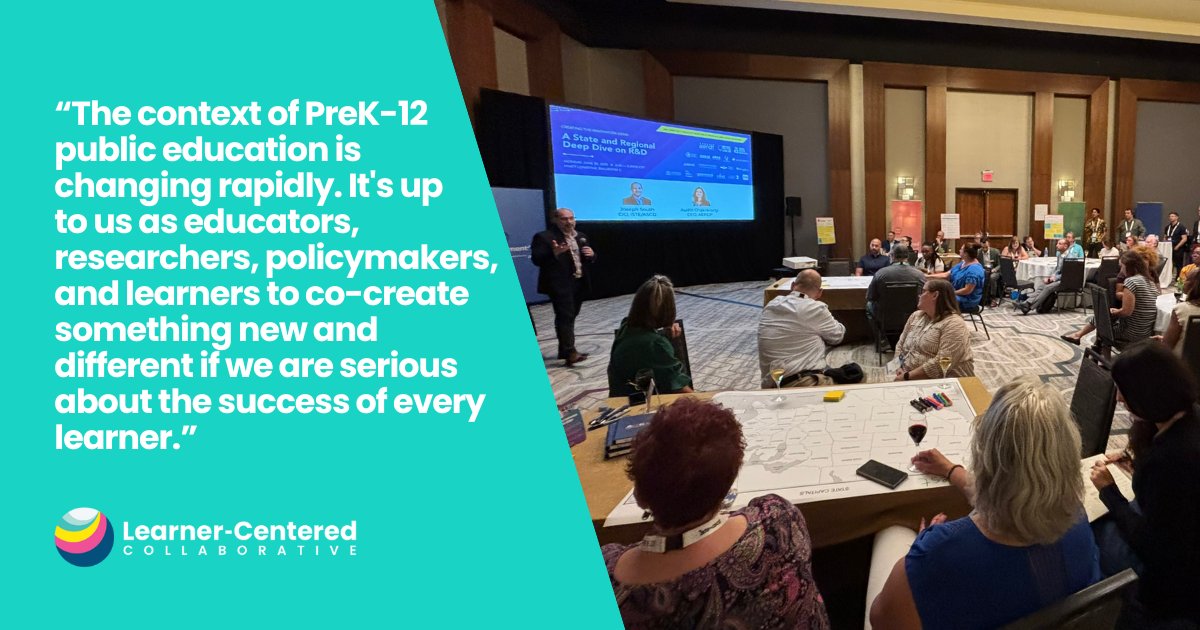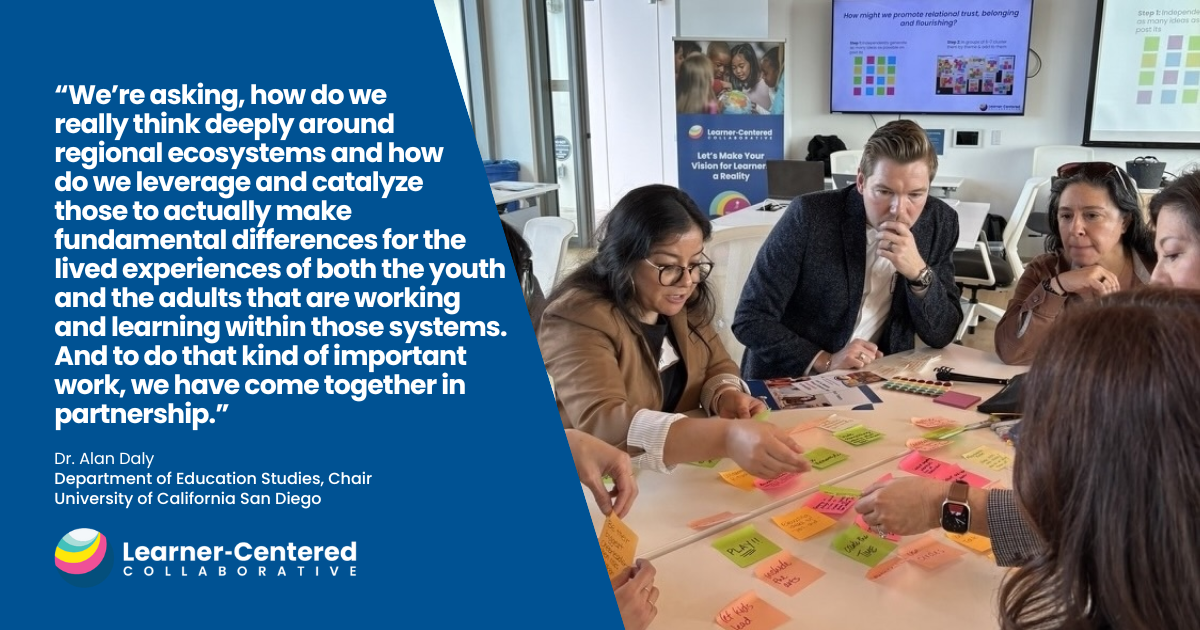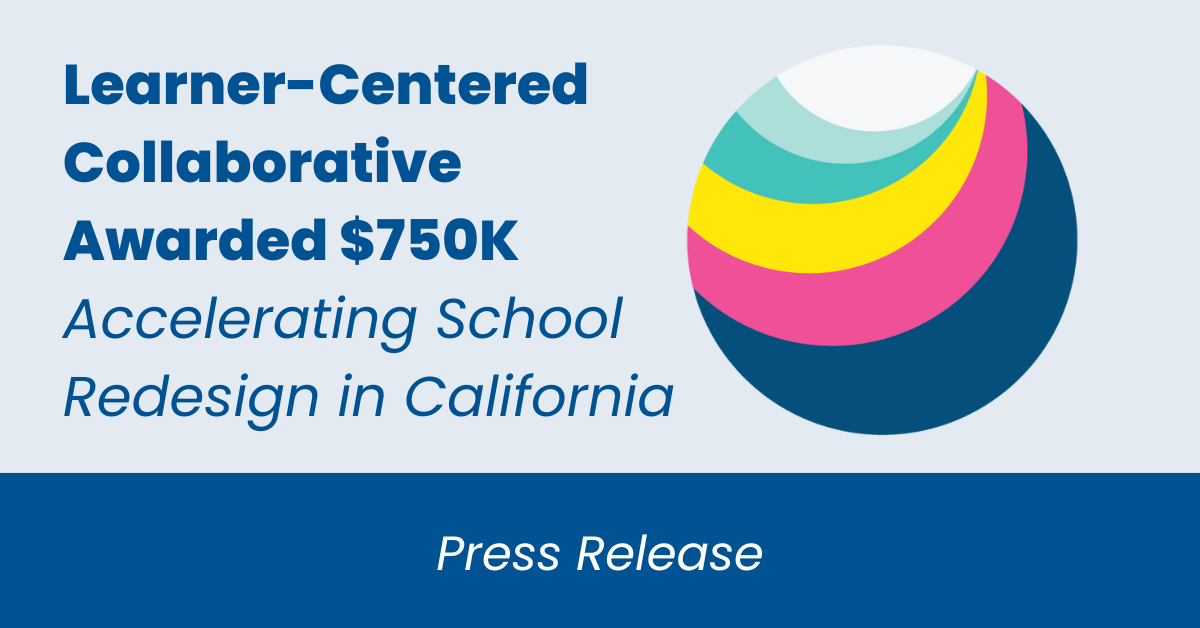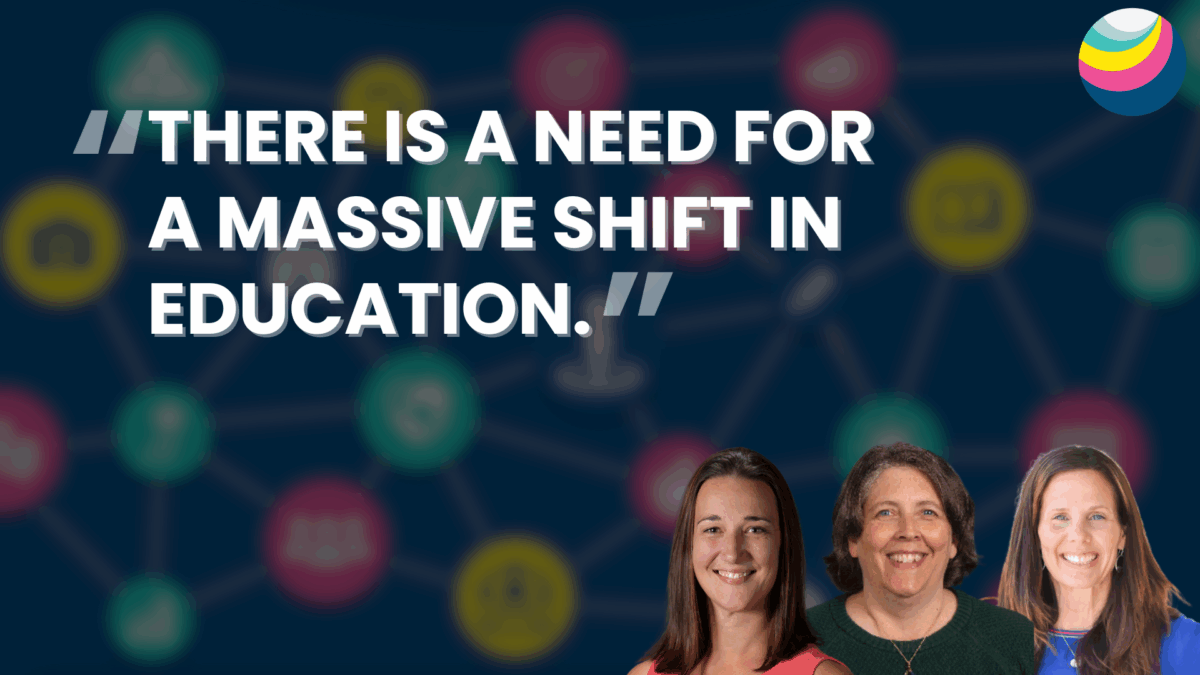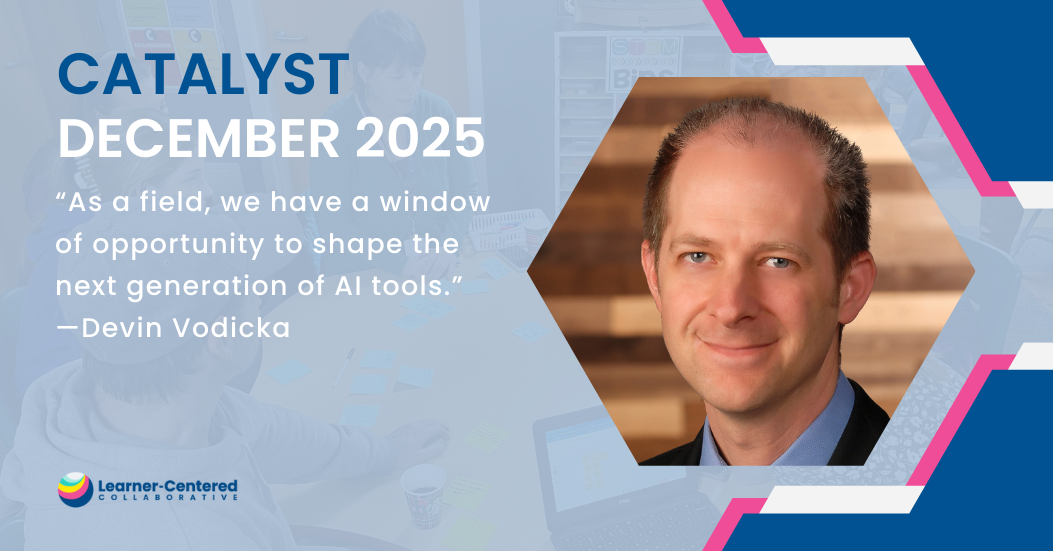A Spotlight on the First UCSD + LCC Research Convening of the 24-25 School Year
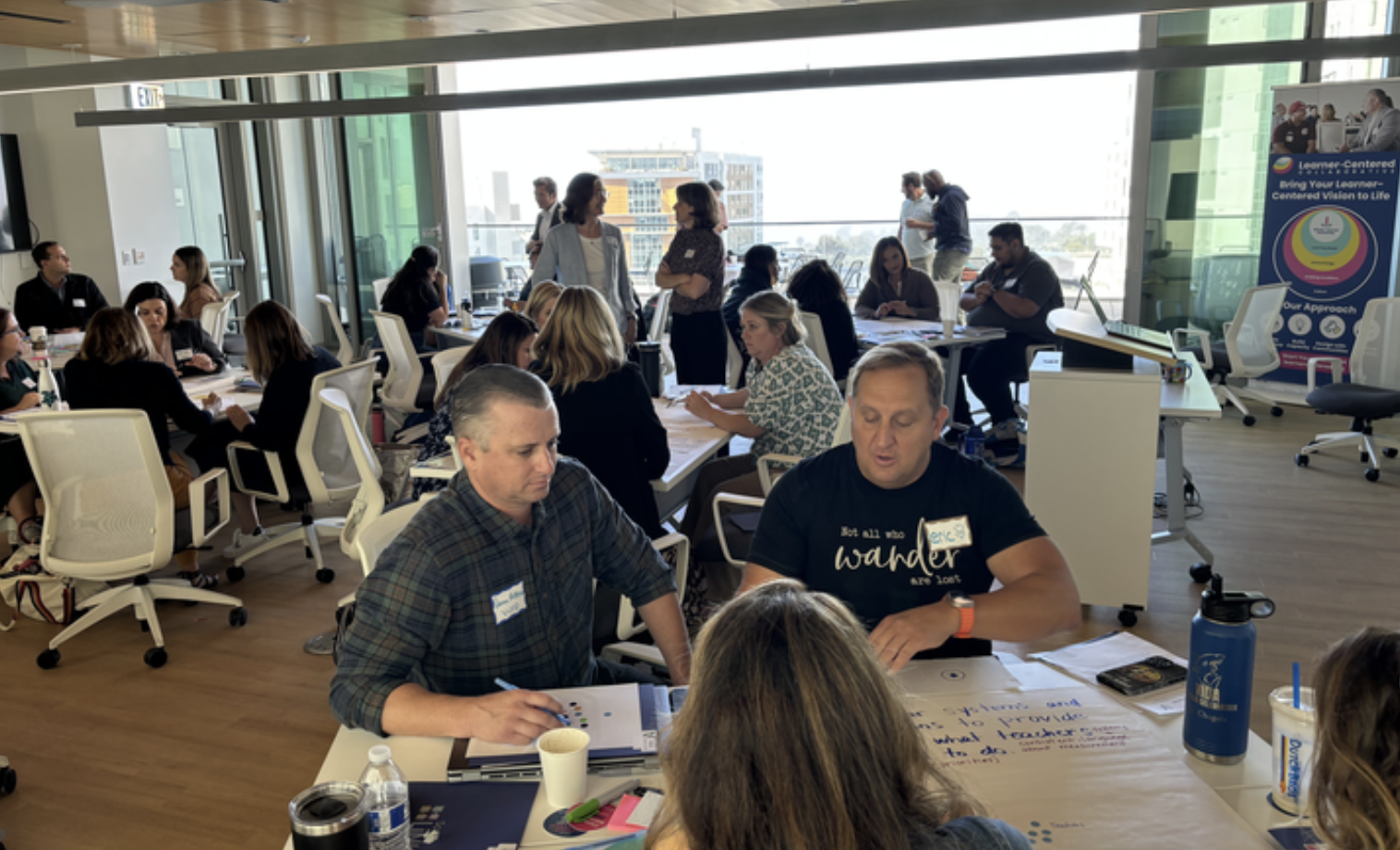
In July of 2023, the University of California, San Diego (UCSD) and the Learner-Centered Collaborative (LCC) announced a groundbreaking partnership to unite researchers, practitioners from LCC, and regional districts in advancing learner-centered practices. A group of Southern California districts kicked off this school year with the new name SoCal Link. In the spirit of sharing and keeping the larger learner-centered community informed, Joanna Libby shares insights and reflections from the first convening.
Q: This was the first convening of the 24-25 school year. What makes this year special?
Last year, we had four convenings, all of which were greatly attended by Southern California districts. It was clear to us how important and committed this particular region was to networking and learning so we decided to do something special this year. We invited districts to apply to send a consistent team to all four convenings in the 24-25 school year with the promise of providing a space and structure to support their team in addressing a pressing problem of practice related to relationships that foster trust, belonging, and flourishing in your organization, with an emphasis on cross-stakeholder and cross-district collaboration.
These convenings, now called the Southern California Learning in Networked Knowledge (SoCal LINK), had a great kick-off with participation from San Diego County Office of Education, Poway Unified, Encinitas Union, Vista Unified, Bonsall Unified, Del Mar Union, High Tech High, Guajome Park Academy, and e3 Civic High. Each group included at least one teacher, site administrator, and office leader.
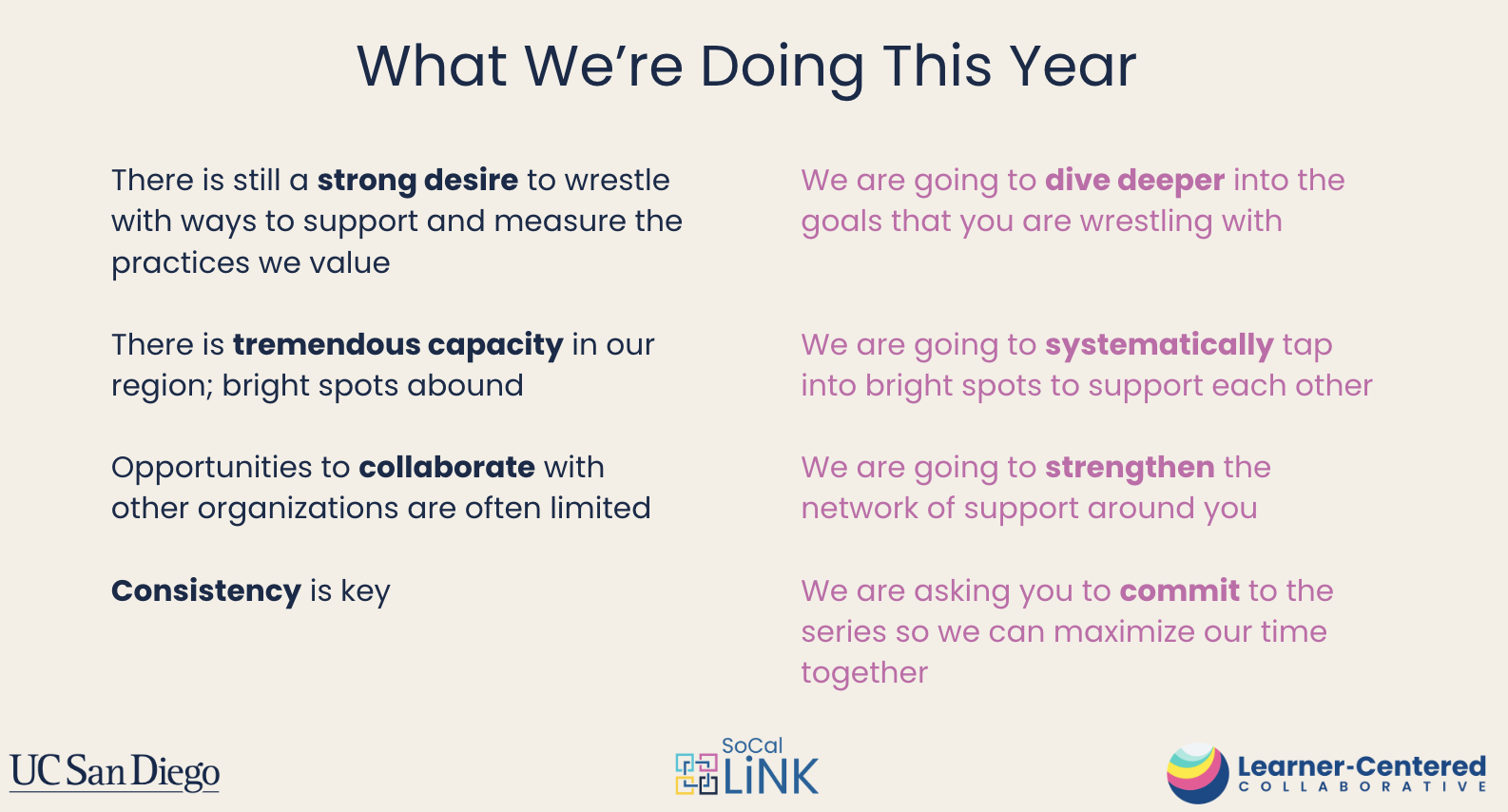
Q: What were the outcomes of the first convening?
Mimi Lockton, David Trautman, and Devin Vodicka facilitated the session with an aim to support districts in identifying a shared problem of practice for their organization, envisioning a collaborative system to work on their problem of practice, and connecting them with resources in the region to support their work on their problem of practice.
In preparation, all districts were asked to brainstorm goals prior to the convening and many shared similar themes in their goals:
- Incorporate more student voice into systems
- Ensure systems foster continued educator growth
- Track the impact of pedagogy and programs for different students
- Clarify and align on designed outcomes, desired practices, data collection and use, and incentive structures
Q: Connection seems to be a critical component of these convenings. Why is that?
The UCSD team shared research that revealed an increase in relationships and connections within a system results in increased effectiveness. They also shared that systems can, with deliberate action and effort, increase relationships and connections. Equipped with this knowledge, the researchers guided teams through a process of mapping their existing network sociograms and highlighting opportunities to increase connection. We then circulated the room with post-it notes, finding opportunities to share resources and opportunities for new relationships.
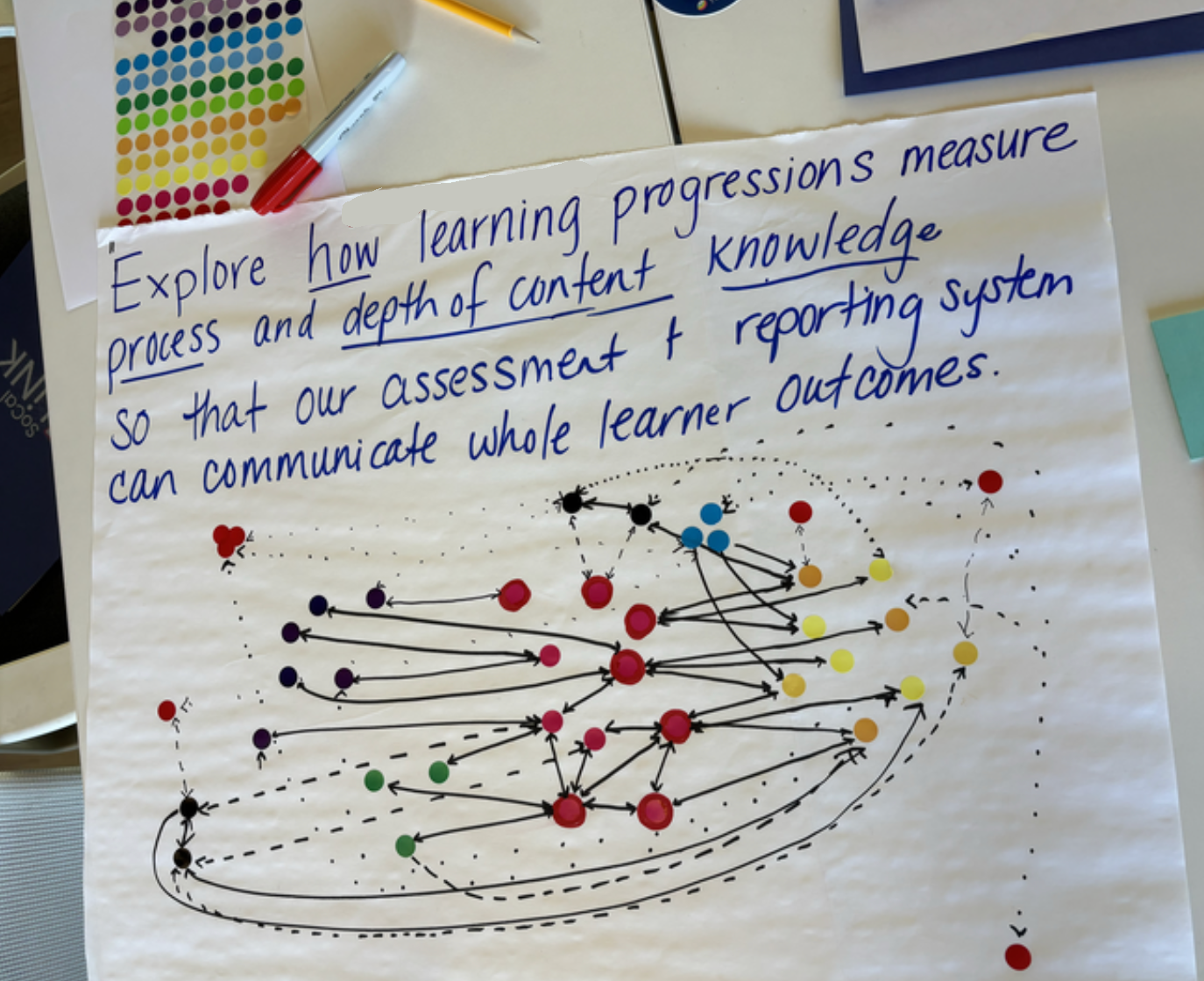
Our hope is that as we increase connection within the network, we will increase our ability to tackle our problem of practice. Of course we also acknowledged the importance of the quality of connection. Research from Hopkins et al. (2023) found that organizations that more authentically collaborated with BIPOC community members were more effective at leveraging external resources for improvement. Organizations that focused on internal collaboration with only performative engagement of the stakeholders they purported to serve made fewer improvements at a slower pace. This is another reason we’re looking forward to consistent participation from districts this year.
What’s Next?
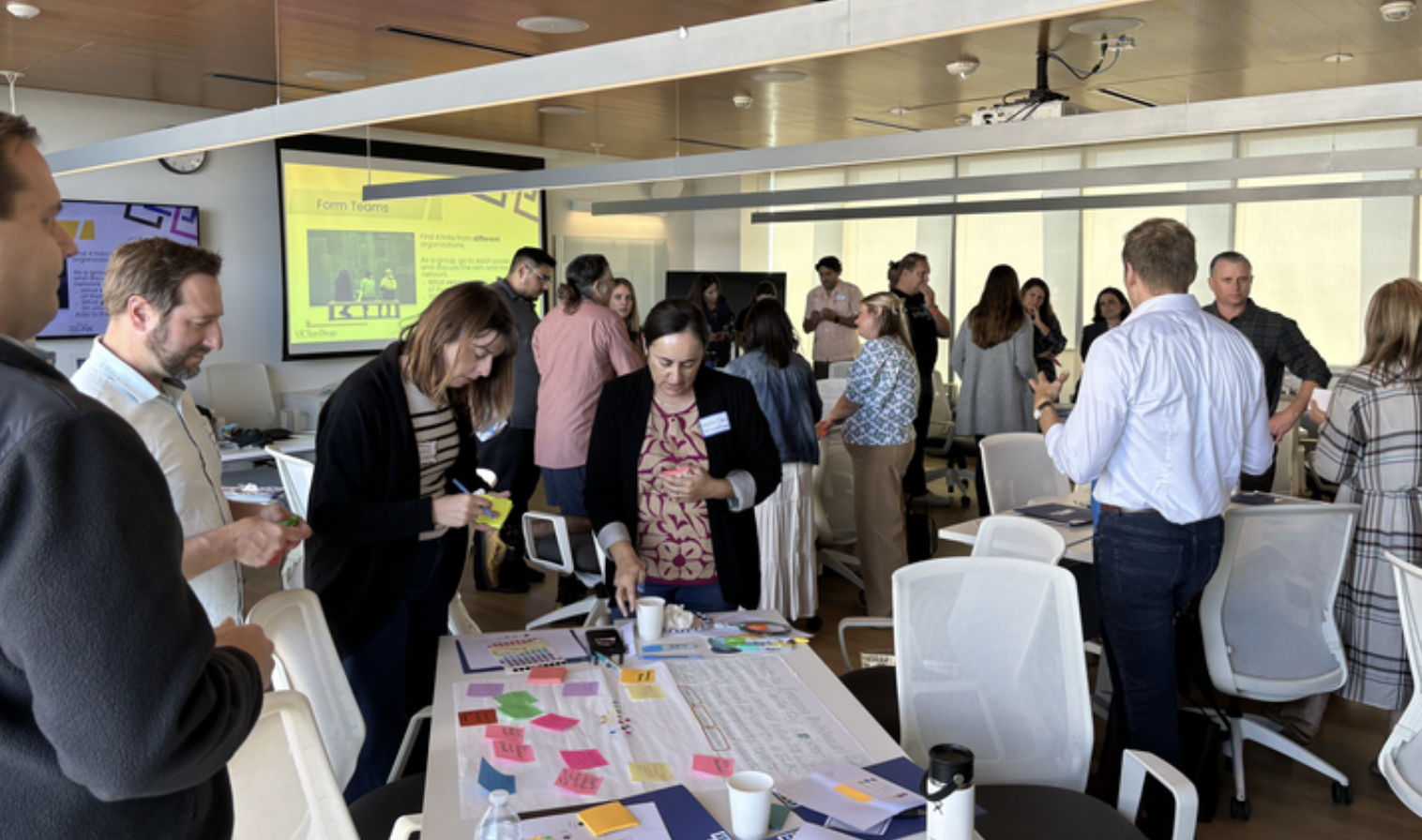
All participants ended the session journaling so the UCSD research team is eager to collate those reflections to craft an impactful session in January 2025. In the meantime, district teams will continue to leverage their existing and new connections to focus on their problems of practice.
